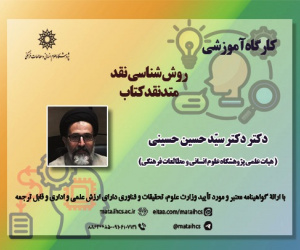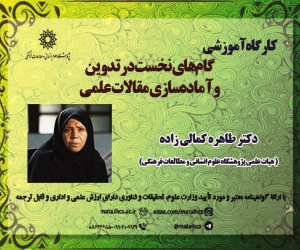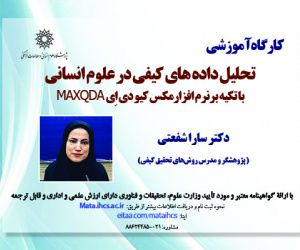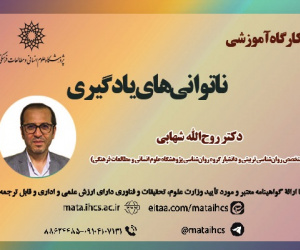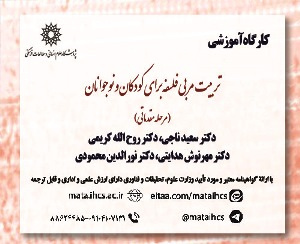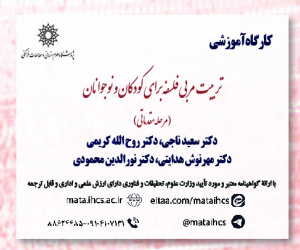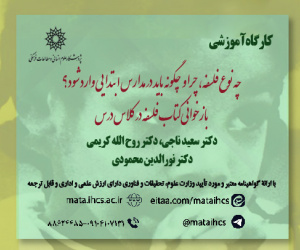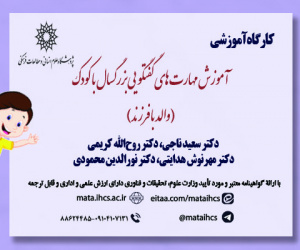تحلیل شبهه تأثیر پذیری قرآن از فرهنگ زمانه از منظر مفسران با تاکید بر موضوع هفت آسمان (مقاله علمی وزارت علوم)
درجه علمی: نشریه علمی (وزارت علوم)
آرشیو
چکیده
شبهه تأثیرپذیری قرآن از اشخاص و فرهنگ زمانه، قدمتی به درازای عصر نزول آن دارد، در پاره ای از آیات قرآن تصریح گردیده که رسول خدا متهم می شد به این که قرآن محصول ارتباط و تعامل وی با افراد خاصی است و نه وحی الهی و آسمانی. وحیانی بودن الفاظ قرآن کریم از یک سو و بهره گیری از مؤلفه های فرهنگ زمانه در بسیاری از آیات آن از سوی دیگر، همچنین طرح این شبهه از سوی محافل روشنفکری به جهت کم ارزش جلوه دادن قرآن کریم از سوی سوم، ضرورت تبیین و تحلیل شبهه تأثیرپذیری قرآن از فرهنگ عصر نزول را در ابعاد مختلف دوچندان می نماید. مسئله اصلی پژوهش حاضر بررسی انگاره و اقوال مفسران فریقین در باب شبهه یادشده است. در کنار دو دیدگاه اثبات و نفی کلیِ تأثیرپذیری و عدم تأثیرپذیری قرآن از فرهنگ عصر نزول، می توان از دیدگاه سومی سخن به میان آورد که بر این باور است قرآن، فرهنگ عصر نزول را غربالگری کرد و هر آنچه را در تناسب با آموزه های الهی بود، تأیید و تثبیت کرد و بر آنچه خارج از مدار دین تعریف می شد، خط بطلان کشید یا به تدریج آن را اصلاح نمود. برخی از نتایج پژوهش حاضر عبارت است از: 1. مُستظهَر نبودن ادعای تأثیرپذیری قرآن از فرهنگ زمانه از سوی مفسران اهل سنت به هیچ گونه دلیل عقلی و نقلی؛ 2. عدم صحت ادعای تطبیق آسمان های هفت گانه بر هیئت بطلمیوسی؛ زیرا قرآن هیچ گاه فلک هشتم و نهم هیئت بطلمیوسی را در عِداد آسمان ها به شمار نیاورده است. روش گردآوری داده ها در این پژوهش، کتابخانه ای است. نوشتار حاضر به روش توصیفی، تحلیلی و با استمداد از رهیافت درون دینی به نقد و تحلیل اقوال پاره ای از مفسران مبنی بر تأثیرپذیری قرآن از فرهنگ زمانه مبادرت ورزیده است.کلید واژه ها: فرهنگ زمانه، شبهه تاثیرپذیری، قرآن، هفت آسمان، مفسران فریقینAn Analysis of the Alleged Influence of ‘Culture of the Time’ on the Qur'an from the Perspective of Qur’anic Exegetes, with Emphasis on the Concept of the Seven Heavens
The allegation that the Qur'an has been influenced by individuals and the culture of its time dates back to the period of its revelation. Certain verses of the Qur'an explicitly state that the Messenger of God was accused of producing the Qur'an through interactions with specific individuals rather than receiving it as divine and heavenly revelation. On the one hand, the Qur'an's claim to be the literal word of God, and on the other hand, its use of cultural elements of the time in many verses, as well as the propagation of this allegation by intellectual circles attempting to undermine the Qur'an’s value, all underscore the need for a thorough explanation and analysis of the issue of the Qur'an’s possible influence by the culture of its era. The main focus of this study is to examine the views and interpretations of the Qur’anic exegetes from both Sunni and Shiite traditions on this allegation. In addition to the two dominant perspectives—one affirming and the other completely denying any influence of the ‘culture of the time’ on the Qur'an—there is a third view that argues the Qur'an filtered the culture of its time. According to this view, the Qur'an endorsed and reinforced elements compatible with divine teachings, while rejecting or gradually reforming those aspects that were not aligned with religious principles.Some of the key findings of this study include: (1) The claim that the Qur'an was influenced by ‘culture of its time’ is not supported by any rational or scriptural evidence from Sunni exegetes; (2) The argument that the seven heavens correspond to the Ptolemaic cosmological model is invalid, as the Qur'an does not include the eighth and ninth spheres of the Ptolemaic system as part of the heavens. This research employs a library-based data collection method and, using a descriptive-analytical approach within the framework of an intra-religious perspective, critiques and analyzes the opinions of certain Qur'anic exegetes regarding the Qur'an's supposed influence by the ‘culture of its time’.

